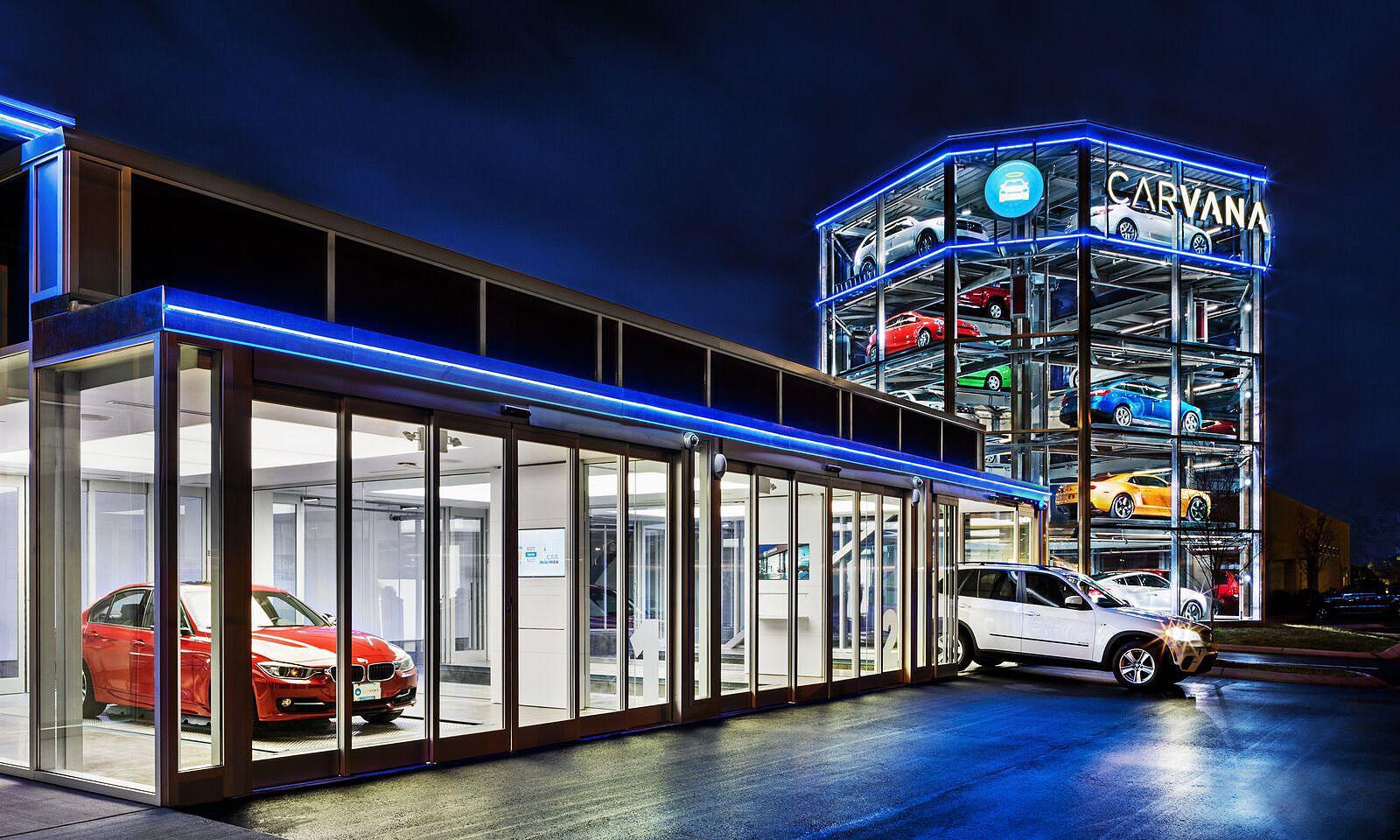
Founded in 2013, Carvana is one of a handful of companies trying to disrupt how cars are traditionally bought in dealerships.
Shares of used-car retailer Carvana Co. fell 26 percent below the company’s initial pricing in their Wall Street debut on Friday.
Carvana shares, priced at $15, closed the day at $11.10 after falling as low as $10.70 just before the 4 p.m. closing bell. The company’s shares opened at $13.50, giving the Carvana a market value of $2 billion.
Carvana sells cars through its website and gives customers the option to pick them up from automated “vending machine” towers located in U.S. cities such as Austin and Dallas in Texas, and Nashville, Tenn.
In an interview earlier Friday afternoon with Automotive News, Carvana co-founder Ryan Keeton said the low share prices would not impact plans to use the generated revenue to fund expansions into new markets.
“We’re not going to focus on something we can’t control,” he said. “We’re excited we made it here.”
Carvana shares spent much of the day hovering between $12 and $13 per share before falling for much of the afternoon.
The company’s IPO comes amid mounting evidence that the six-year recovery in the U.S. auto industry may be losing steam.
Industry officials and Wall Street analysts have raised concerns that values for used sedans were dropping as more vehicles were turned in when leases ended.
Founded in 2013, Carvana is one of a handful of companies trying to disrupt how cars are traditionally bought in dealerships and to take on Carmax Inc., the largest U.S. used-car retailer.
However, Carvana stands to benefit from consumers’ increasing comfort to buy vehicles online.
TrueCar Inc., an online service that matches car buyers with dealers, has seen its shares nearly double since their debut in May 2014.
Carvana’s sales surged nine-fold in 2014, more than tripled in 2015, and nearly tripled in 2016 to $365.1 million.
However, the company’s net loss widened to $93.1 million in 2016 from $36.8 million in 2015 as it invests heavily in growth.
Keeton said he expects losses to slow and then reverse over time. The company’s website and its vehicle-buying and selling processes have largely been built out and can more easily expand into new markets moving forward.
“Once you build that, it’s just about scaling efficiently,” he said.
Carvana, based in Phoenix, was located in 21 markets at the end of 2016. Keeton said the company has expanded into another three so far this year and would expand at a “similar pace” as in previous years, though he declined to elaborate.
The company sold all the 15 million shares in the offering, raising about $2 billion.
Carvana is backed by DriveTime Automotive Group, a network of used-car dealerships and car refurbishment centers.
Wells Fargo, Citigroup and Deutsche Bank Securities are the underwriters for the offering.
Reuters and John Irwin contributed to this report.
[“Source-autonews”]





